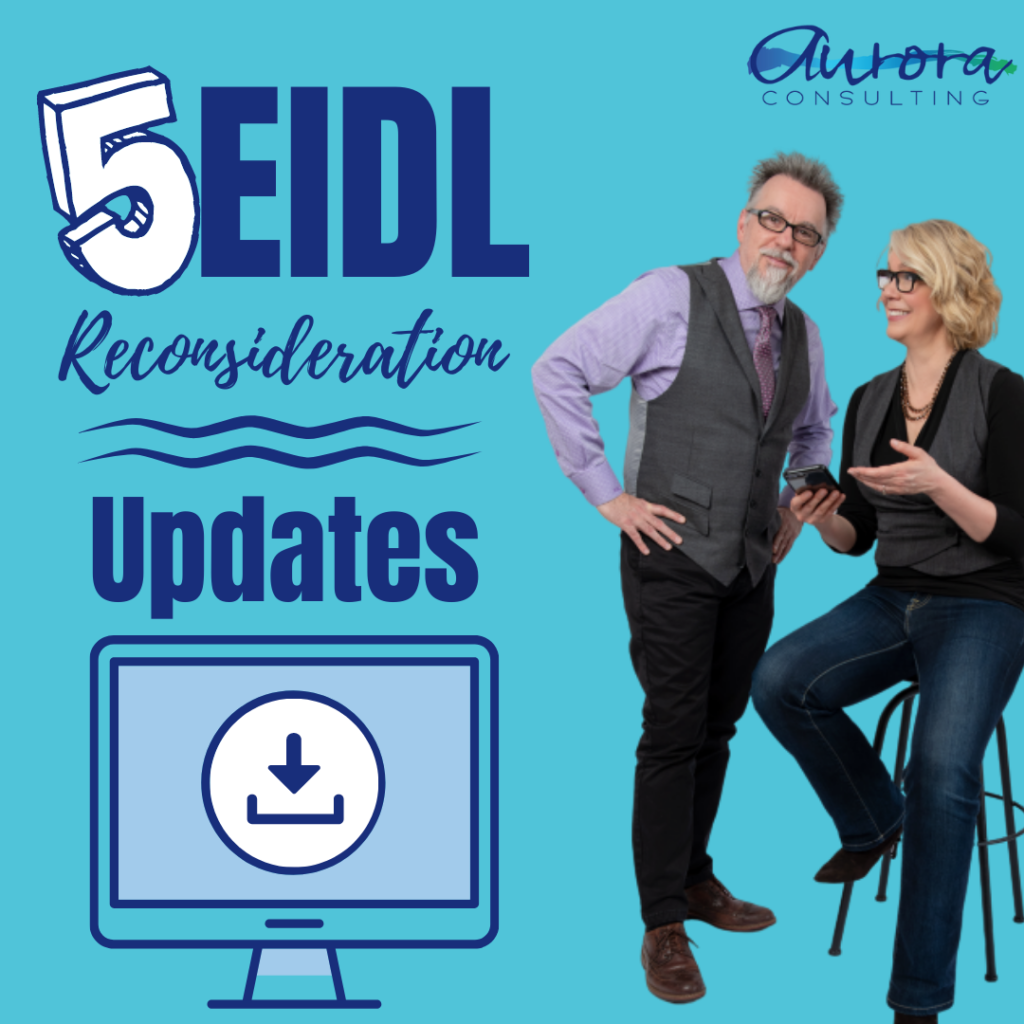Ambiguity and uncertainty are not words that Small Business owners embrace in their daily vocabulary. Even fishing professionals, sailing the chilly vastness of the North Atlantic in search of Cod, Haddock and Mackerel, don’t use those words. They set out on their fishing forays with a sense that they will find fish using their experience and knowledge, helped along by some modern technology.
Call the SBA with a question that requires a definitive answer, though, and you get an uncertain or ambiguous answer. Call multiple SBA representatives with the same question and get multiple answers.
Small Business owners have come to rely on the SBA during the COVID-19 pandemic to provide a vital financial lifeline to keep their businesses alive as they struggle with the various challenges of the pandemic disaster. When a Small Business owner asks questions, whether they’re general questions about the EIDL process, or specific questions about the Small Business’ EIDL application, they expect specific and hopefully detailed answers.
Question to the SBA: “Now that the loan will be declined for Reconsideration because the IRS hasn’t processed the tax return, how long does the applicant have to file another Reconsideration?”
I don’t even remember what the answer was because it was so vague and ambiguous.
“Good morning SBA, what is the current turnaround time, on average, for EIDL Reconsiderations?” or
“Hello SBA, if I file a Reconsideration request today, how soon can I expect that my file will be assigned to a Loan Officer at the Reconsideration team?”
The Small Business owner cannot get reasonable or certain answers to these questions.
Trevor worked in retail electronics in the 1980’s in customer service. When a customer brought a VCR or stereo system in for repair, he could provide the customer with a reasonable expectation for turnaround time for their repair. Even if they had to order parts for the device to repair it, they could know within a reasonable range of time, when those parts were due to arrive and when the technician could be expected to complete the repair.
They knew the repair intake process, the repair tech servicing queue, the quality control check process, and even when the product was on the truck for delivery back to the store for customer pickup. And this was with electronics repairs where anything could happen with the electronic device once it was on the repair bench and the tech tried to solve the repair problem.
Customers had a reasonable expectation to receive unambiguous information about the repair process.
“Hi there SBA! Can you please give me a status on my EIDL Reconsideration file?”
The Answer most often: “In process.”
What does that mean? Where in the process is the file? Has a Loan Officer reviewed the tax returns, read the transcripts from the IRS, etc.???
As a Mortgage Banker, Trevor knew every step of the way where the Applicant’s file was in the loan process: appraisal on order, appraisal received, verifications received, submitted to Underwriting, quality control review, clear for closing, and etcetera and etcetera.
While writing this blog, one of our clients for Reconsideration sent me a text message,
“This is like the old Heinze ketchup commercial, ‘Anticipation, it’s making me wait.’ Guessing no news is good news?”
When a Small Business owner begins their business day, they do so with a clear understanding of how their business operates, what they have to do to achieve their business goals, and their certainty in their methods for success. When they run up against the constant lack of clarity and certainty with their urgent EIDL financing requests at the SBA, their COVID crisis anxiety increases exponentially.
This is unacceptable.
The Small Business Administration, in its mission to advocate for Small Business, needs to do a spectacularly better job of providing clarity and specificity and to remove ambiguity and uncertainty from the process.

